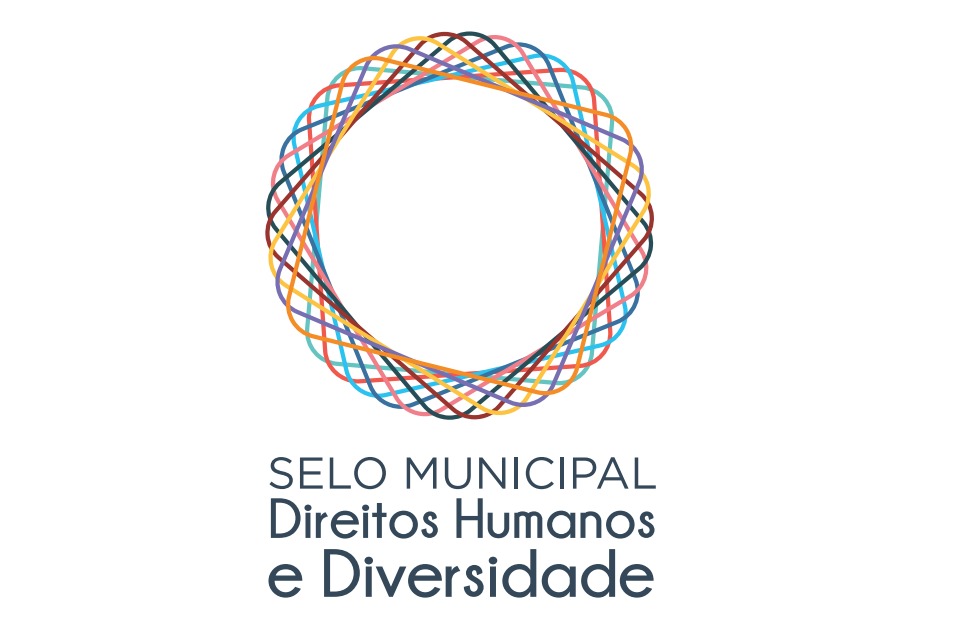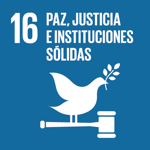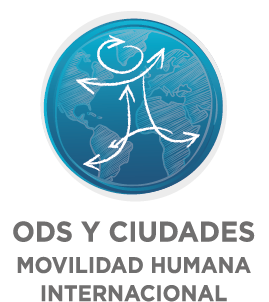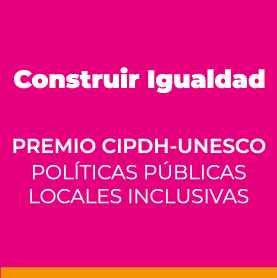Human Rights and Diversity Seal Program (Programa Selo de Direitos Humanos e Diversidade)

- Region
- Latin America and the Caribbean
- Range of Demographic Size
- 1,000,000 inhabitants or more (metropolis)

16.1 Significantly reduce all forms of violence and related death rates everywhere.
16.2 End abuse, exploitation, trafficking and all forms of violence against and torture of children.
16.3 Promote the rule of law at the national and international levels and ensure equal access to justice for all.
16.4 By 2030, significantly reduce illicit financial and arms flows, strengthen the recovery and return of stolen assets and combat all forms of organized crime.
16.5 Substantially reduce corruption and bribery in all their forms.
16.6 Develop effective, accountable and transparent institutions at all levels.
16.7 Ensure responsive, inclusive, participatory and representative decision-making at all levels.
16.8 Broaden and strengthen the participation of developing countries in the institutions of global governance.
16.9 By 2030, provide legal identity for all, in particular, by means of birth registration.
16.10 Ensure public access to information and protect fundamental freedoms, in accordance with national legislation and international agreements.
16.a Strengthen relevant national institutions, including through international cooperation, for building capacity at all levels, in particular in developing countries, to prevent violence and combat terrorism and crime.
16.b Promote and enforce non-discriminatory laws and policies for sustainable development.
Universal Declaration of Human Rights (UDHR).
• Inter-American Convention on the Elimination of all Forms of Discrimination Against Persons with Disabilities
• Inter-American Convention on the Prevention, Punishment, and Eradication of Violence against Women (Convention of Belém do Pará)
Convention on the Rights of Persons with Disabilities (CRPD).
Convention on the Elimination of all Forms of Discrimination Against Women (CEDAW).
Indigenous and Tribal Peoples Convention, 1989 (number 169).
United Nations Declaration on the Rights of Indigenous Peoples (UNDRIP).
Declaration on the Elimination of Violence Against Women.
Summary
The Selo de Direitos Humanos e Diversidade (Human Rights and Diversity Seal) program is an effort by the Municipal Secretariat of Human Rights and Citizenship (SMDHC) of the City of São Paulo, which aims at recognizing and awarding innovative projects and good practices in the private sector, third sector organizations, and public agencies that foster equality and diversity through the inclusion of minorities—a priority audience in public policy formulation—in the labor market, for example, or even through the promotion of the debate over diversity.
In force since 2018, the program is related to the slogan of 2030 Agenda of the United Nations, “Leave No One Behind,” focused on annual cycles. The fifth edition of the program was in 2022.
Program activities are implemented based on two main objectives. First, the opening of a public tender for the selection and adjudication of proposals, and second, the creation and development of activities of Rede do Selo (Seal Network), a network composed of different organizations centered on twelve categories: 1. childhood and adolescence; 2. racial equality; migrants; 4. youth; 5. LGBTI; 6. women; 7. persons with disabilities; 8. the homeless; 9. the elderly; 10. incarcerated persons and former prisoners; 11. indigenous peoples; 12. transversalities.
Each cycle of the Selo de Direitos Humanos e Diversidade ends with the launching of the following edition of the program. Each edition seeks for participant organizations to further develop their proposals and even expand them to other program categories. Those organizations that participated in the previous edition of the program may sign up again and request an adjudication for the same category if they demonstrate that significant progress has been made in their activities, with the possibility of submitting a new proposal or expand toward other program categories.
Implementation Date:
Start: 01 / 8 / 2018
End: End: Currently in force
Private sector
- Email: smdhcgabinete@prefeitura.sp.gov.br
- Web: https://www.prefeitura.sp.gov.br/cidade/secretarias/direitos_humanos/
- Telephone: +55 11 2833-4150
- Social Network:
Instrumentos

16.1 Significantly reduce all forms of violence and related death rates everywhere.
16.2 End abuse, exploitation, trafficking and all forms of violence against and torture of children.
16.3 Promote the rule of law at the national and international levels and ensure equal access to justice for all.
16.4 By 2030, significantly reduce illicit financial and arms flows, strengthen the recovery and return of stolen assets and combat all forms of organized crime.
16.5 Substantially reduce corruption and bribery in all their forms.
16.6 Develop effective, accountable and transparent institutions at all levels.
16.7 Ensure responsive, inclusive, participatory and representative decision-making at all levels.
16.8 Broaden and strengthen the participation of developing countries in the institutions of global governance.
16.9 By 2030, provide legal identity for all, in particular, by means of birth registration.
16.10 Ensure public access to information and protect fundamental freedoms, in accordance with national legislation and international agreements.
16.a Strengthen relevant national institutions, including through international cooperation, for building capacity at all levels, in particular in developing countries, to prevent violence and combat terrorism and crime.
16.b Promote and enforce non-discriminatory laws and policies for sustainable development.
Universal Declaration of Human Rights (UDHR).
• Inter-American Convention on the Elimination of all Forms of Discrimination Against Persons with Disabilities
• Inter-American Convention on the Prevention, Punishment, and Eradication of Violence against Women (Convention of Belém do Pará)
Convention on the Rights of Persons with Disabilities (CRPD).
Convention on the Elimination of all Forms of Discrimination Against Women (CEDAW).
Indigenous and Tribal Peoples Convention, 1989 (number 169).
United Nations Declaration on the Rights of Indigenous Peoples (UNDRIP).
Declaration on the Elimination of Violence Against Women.
Location
- Region
- Latin America and the Caribbean
- Range of Demographic Size
- 1,000,000 inhabitants or more (metropolis)
Contact details
- Email: smdhcgabinete@prefeitura.sp.gov.br
- Web: https://www.prefeitura.sp.gov.br/cidade/secretarias/direitos_humanos/
- Telephone: +55 11 2833-4150
- Social network:



